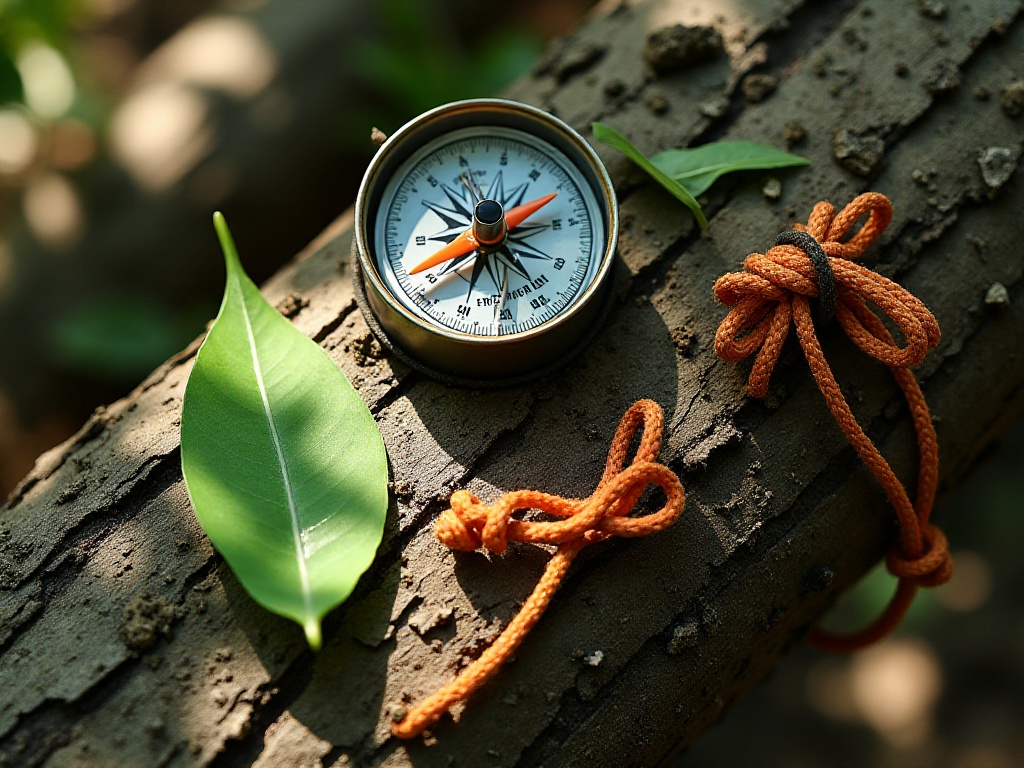Introduction
Have you also heard about the "eight glasses of water per day" rule? This advice has almost become a modern life doctrine, but have you ever wondered where this number came from? In today's fast-paced life, more and more people are focusing on healthy lifestyles, and scientific water consumption is an important part of it. Let's discuss the science behind this seemingly simple matter of drinking water.
The Eight Glasses Myth
When I first started working, I always kept a large water bottle on my desk and installed a water-drinking reminder app on my phone. Every time the reminder went off, I would force myself to gulp down water. Later, I found that many people, like me, were anxious about meeting the "eight glasses standard." In the office, you can often see colleagues with various water bottles on their desks, some even marked with time scales to remind themselves to drink water at specific times and amounts.
This "eight glasses theory" can be traced back to 1945, when the U.S. National Food and Nutrition Board recommended that adults should consume 2.5 liters of water daily. What many people don't know is that this recommendation included water from all food sources, not just drinking water. In fact, our daily food intake contains large amounts of water, such as fruits, vegetables, soups, etc., which should all be counted towards the total daily water intake.
This theory has been oversimplified in its spread, leading to many misunderstandings. With the development of social media, these misunderstandings have been further amplified. Many influencers and self-media bloggers overemphasize the importance of "eight glasses" to attract attention, even mystifying it as a universal solution to various health problems. However, this one-sided understanding may actually bring negative effects.
Scientific Truth
According to the latest research data, a healthy adult's daily water requirement actually varies from person to person. The World Health Organization's 2023 research report indicates that in temperate climates, a 60kg adult's basic daily water requirement is about 1.5-2 liters, rather than the universal "eight glasses" (about 1.9 liters). This conclusion is based on extensive clinical research and data analysis.
Modern medical research shows that the human body has an extremely precise thirst regulation mechanism. When the body lacks water, the thirst center in the hypothalamus is activated, producing a feeling of thirst. This mechanism has been continuously refined through evolution and can quite accurately guide our drinking behavior. Therefore, relying too much on external standards while ignoring natural body signals is less scientific.
Multiple studies have found that the body's water metabolism is a dynamic balance process. Besides drinking water, we constantly lose water through breathing, sweating, and urination. Meanwhile, internal metabolism also produces water. This complex balance mechanism makes the simple "eight glasses" standard difficult to apply to everyone.
Personalized Advice
Influencing Factors
Your specific water needs depend on many factors. First is the environmental temperature impact. In hot summer, an ordinary office worker may lose 0.5-1 liter of water per hour. This is because the body needs to regulate temperature through sweating, which leads to significant water loss. In contrast, in cold winter, this number might drop to 0.2-0.3 liters, as sweating decreases in low temperatures.
Air-conditioned environments also affect water loss. Working in dry air-conditioned rooms causes continuous water loss through skin and respiratory tract. Research shows that people working long-term in air-conditioned environments need an additional 300-500ml of water daily to maintain body water balance.
Exercise intensity is also crucial. Studies show that one hour of moderate-intensity exercise causes about 0.5-1 liter of water loss. For high-intensity exercise, this number might double. Professional athletes during training may lose 2-3 liters of water per hour. Therefore, hydration strategy during exercise needs special attention.
Additionally, personal factors like weight, age, gender also affect water needs. Generally, for every 10kg increase in body weight, daily basic water needs increase by 200-300ml. More importantly, different lifestyles and work natures bring different water needs. For example, outdoor workers and indoor office workers have very different water requirements.
Hydration Tips
What's the smart way to hydrate? My experience is to listen to body signals. Drink when thirsty, drink more when urine color darkens. This approach is much more scientific than rigidly following "eight glasses a day." In practice, you can develop some good drinking habits.
Drinking a glass of warm water after waking up can help activate body functions and promote metabolism. This habit is recorded in traditional Eastern medicine, and modern research has confirmed its rationality. The first glass of water in the morning is best warm, as the digestive system is more sensitive at this time, and cold water might irritate the stomach.
During work, it's recommended to drink a small glass of water every 1-2 hours. This avoids putting too much burden on the kidneys from drinking too much water at once. Notably, it's better to drink water slowly, allowing better absorption by the body.
Hydration during exercise also requires attention. It's recommended to drink 300-500ml of water 30 minutes before exercise, and 100-200ml every 15-20 minutes during exercise. Post-exercise hydration should be based on sweat loss, generally recommending replenishing lost water in portions within 2 hours after exercise.
Common Misconceptions
Excessive Water Intake
Many people don't know that drinking too much water can also be problematic. Research published in the "Journal of Clinical Medicine" in 2022 shows that excessive water intake can lead to hyponatremia, which can cause symptoms like dizziness and nausea in severe cases. This situation is particularly common in long-duration activities like marathons.
Excessive water intake can dilute blood electrolytes, especially sodium ion concentration. When blood sodium concentration becomes too low, it may cause brain edema, leading to headaches and confusion. In extreme cases, it could be life-threatening. Therefore, hydration should be moderate, and one shouldn't drink excessive water just to pursue so-called "health standards."
Another common issue is that many people believe drinking more water enhances beauty. While moderate hydration indeed helps maintain skin moisture, excessive water intake won't bring additional beauty benefits. Instead, it might increase kidney burden and cause frequent urination, affecting work and rest.
Drinking Timing
Have you heard sayings like "drinking water before meals helps weight loss" or "don't drink water during exercise"? These are all incorrect. A 2021 clinical study involving 2,000 people proved that moderate pre-meal water intake has no negative impact on digestion, and hydration during exercise is actually necessary.
Regarding pre-meal water consumption, many worry it will dilute gastric juices and affect digestion. In fact, moderate pre-meal water intake (200-300ml) helps promote digestive juice secretion, preparing for digestion. However, it's best to leave 10-15 minutes between drinking water and eating to avoid excessive stomach expansion.
Hydration during exercise is essential. Sweating loses significant water and electrolytes; without timely replenishment, it might affect exercise performance and potentially lead to heat stroke. Therefore, water should be replenished during exercise according to exercise intensity and sweating conditions.
Special Situations
Disease States
If you have special health conditions like kidney disease or heart failure, you need to pay special attention to water intake. In such cases, it's recommended to consult a doctor to develop personalized hydration plans. Different disease states have different water intake requirements.
Patients with impaired kidney function need strict water intake control. Excessive water intake increases kidney burden and worsens edema symptoms. Doctors usually adjust recommended water intake based on urine output and weight changes. Some patients may need to keep detailed records of water intake and urination for better treatment adjustment.
Heart failure patients also need to monitor water intake. Excessive water intake increases cardiac burden and worsens heart failure symptoms. These patients usually need to restrict sodium intake and adjust water intake based on weight changes. Generally, total daily water intake is recommended not to exceed 1-1.5 liters.
Diabetic patients need to pay extra attention to hydration. High blood sugar leads to increased body water loss, so appropriate increase in water intake is needed. However, intake of sugary drinks should be controlled to avoid affecting blood sugar control. Plain water or sugar-free tea is recommended as the main drink.
Special Groups
Pregnant women, elderly people, and children have special water intake standards. For example, pregnant women need an additional 300-500ml daily water intake during pregnancy. This is due to increased metabolism and the need to provide sufficient amniotic fluid for the fetus.
Pregnant women have different water needs during different pregnancy stages. Early pregnancy might make it difficult to drink enough water due to morning sickness; at this time, small amounts frequently, choosing warm drinks is recommended. Middle and late stages require appropriate increase in water intake, but less water should be consumed at night to avoid affecting sleep.
Elderly people often experience dehydration due to reduced thirst sensation. Research shows that people over 65 have 20-30% lower thirst sensitivity than young people. Therefore, elderly people need to develop regular drinking habits, drinking water even when not feeling thirsty. It's recommended to drink water at fixed times like after waking up, before meals, and after noon rest.
Children's water needs should be determined by age and weight. Generally, 60-80ml of water per kilogram of body weight per day is needed. Due to high activity levels and active metabolism, children often need more water per unit body weight than adults. Parents should observe children's activity levels and sweating conditions to replenish water timely.
Practical Advice
Daily Observation
Want to know if you're drinking enough water? Besides checking urine color, you can observe these signals: skin elasticity, lip dryness, mental state, etc. These are early signs of body dehydration.
Skin elasticity test is a simple and effective method. Pinch the skin on the back of your hand and release; if the skin quickly returns to normal, it indicates sufficient hydration; if skin rebounds slowly, it might indicate dehydration.
Lip condition is also an important indicator. If you notice dry, peeling lips, it's likely a sign of dehydration. You should replenish water promptly and can use lip balm to relieve symptoms.
Mental state is also worth noting. Even mild dehydration can lead to decreased concentration and increased fatigue. If you notice decreased mental acuity and work efficiency, try drinking some water; it might have unexpected effects.
Beverage Choices
Pure water, mineral water, and light tea are good choices. 2023 Nutrition Society data shows that drinking 1-2 cups of light tea daily not only replenishes water but also provides beneficial polyphenols. When choosing beverages, note the following points.
The choice between pure water and mineral water depends on personal needs. Pure water has a mild taste, suitable for daily drinking. Mineral water contains natural minerals, especially suitable for post-exercise replenishment. But be sure to choose products from regular manufacturers and avoid bottled water from unknown sources.
Tea is a good hydration choice, but pay attention to concentration. Strong tea, due to high caffeine content, may have diuretic effects and worsen dehydration. Light tea is recommended, providing both hydration and tea benefits. Green tea, black tea, and oolong tea are all good choices.
While fruit juice contains vitamins and minerals, it also contains large amounts of sugar and isn't suitable as a main hydration source. If you want fruit juice, it's recommended to make fresh juice at home and drink it diluted, providing hydration without excessive sugar intake.
Sports drinks are mainly suitable for replenishing water and electrolytes after intense exercise, not necessary for daily hydration. If choosing sports drinks, check the ingredients list and avoid products with high sugar content.
Conclusion
Regarding hydration, the most important thing is finding what works for you. Scientific hydration not only affects physical health but also improves life quality. Everyone's lifestyle, work environment, and physical condition differ, so hydration strategies need to be adjusted accordingly.
Remember, hydration isn't about meeting a fixed standard but satisfying your body's actual needs. Finding the most suitable way to hydrate comes through observing body signals and combining scientific knowledge.
Let's move beyond the "eight glasses" stereotype, learn to listen to our bodies, and establish healthy, scientific drinking habits. Do you think your current drinking habits are appropriate? Why not try adjusting them according to the methods mentioned in the article?
By the way, after finishing this article, I should have some water. How about you? When was the last time you had a drink?







